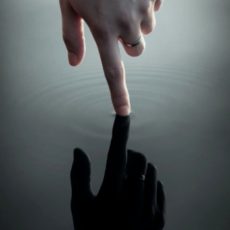Lie: More is better.
Truth: Less is better.
The maxim – less is more – is now a commonplace, but still seems counterintuitive. Most however, would agree that the accumulation of more and more stuff has a point of diminishing returns. Witness the hoarders or even the cluttered homes and closets of the average suburbanite.
From the Los Angeles Times:
Consider these statistics cited by professional organizer Regina Lark: The average U.S. household has 300,000 things, from paper clips to ironing boards.
The volume of artificial things has exploded in the last one hundred years: coasters, bookmarks, disposable cups, plates, sporks, watches, dental floss, plastic bags, dog treats, mechanical pencils, light switches, welcome mats, pillows, fans, magazines, lamps and on it goes. But that’s just the physical things. . .

